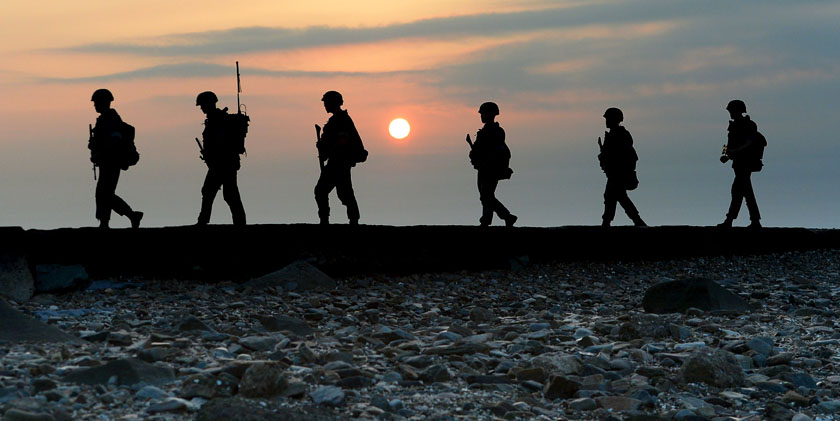Seoul talks tough as North, South Korea hold marathon crisis talks
- * Top envoys negotiate through the night and into Monday
- * North and South Korea in heightened states of military readiness
- * Seoul stands by demand that Pyongyang apologise over mines
MARATHON TALKS
The negotiations began on Saturday evening, shortly after North Korea's deadline passed for Seoul to halt the anti-Pyongyang propaganda broadcasts or face military action. They broke up before dawn on Sunday and restarted that afternoon.
The delegates were "continuing talks for long hours in the midst of the critical situation" on the peninsula, Min Kyung-wook, a spokesman for South Korea's presidential Blue House, told reporters, without giving details.
Chung Young-chul, a North Korea expert at Sogang University's Graduate School of Public Policy in Seoul, said Park's strong words may indicate a lack of progress, although other observers said the unusual length of the talks bodes well.
"I am not really optimistic about the talks because they both have heavy demands that can't be dropped," Chung said. "It seems difficult to get any agreement and I think they are locking horns and tension will persist for a while."
Park's national security adviser, Kim Kwan-jin, and Unification Minister Hong Yong-pyo are representing the South in the talks. Hwang Pyong So, the top military aide to the North's leader, Kim Jong Un, and Kim Yang Gon, a veteran North Korean official in inter-Korean affairs, are representing Pyongyang.
Ties have been virtually frozen since the 2010 sinking of a South Korean warship, which Seoul has blamed on a North Korean submarine. Pyongyang denies responsibility.
Days after the landmine incident, Seoul began its propaganda broadcasts in random three-hour bursts from 11 banks of loudspeakers, including news reports and K-pop music from the South, resuming a tactic both sides halted in 2004.
The crisis escalated on Thursday when the North fired four shells into the South, according to Seoul, which responded with a barrage of 29 artillery rounds. North Korea declared a "quasi-state of war" in front-line areas and set an ultimatum for Seoul to halt its broadcasts.
That deadline passed on Saturday without incident.
The United States, which has 28,500 soldiers based in South Korea, is conducting annual military exercises with the South. North Korea regularly condemns the manoeuvres as preparation for war.






